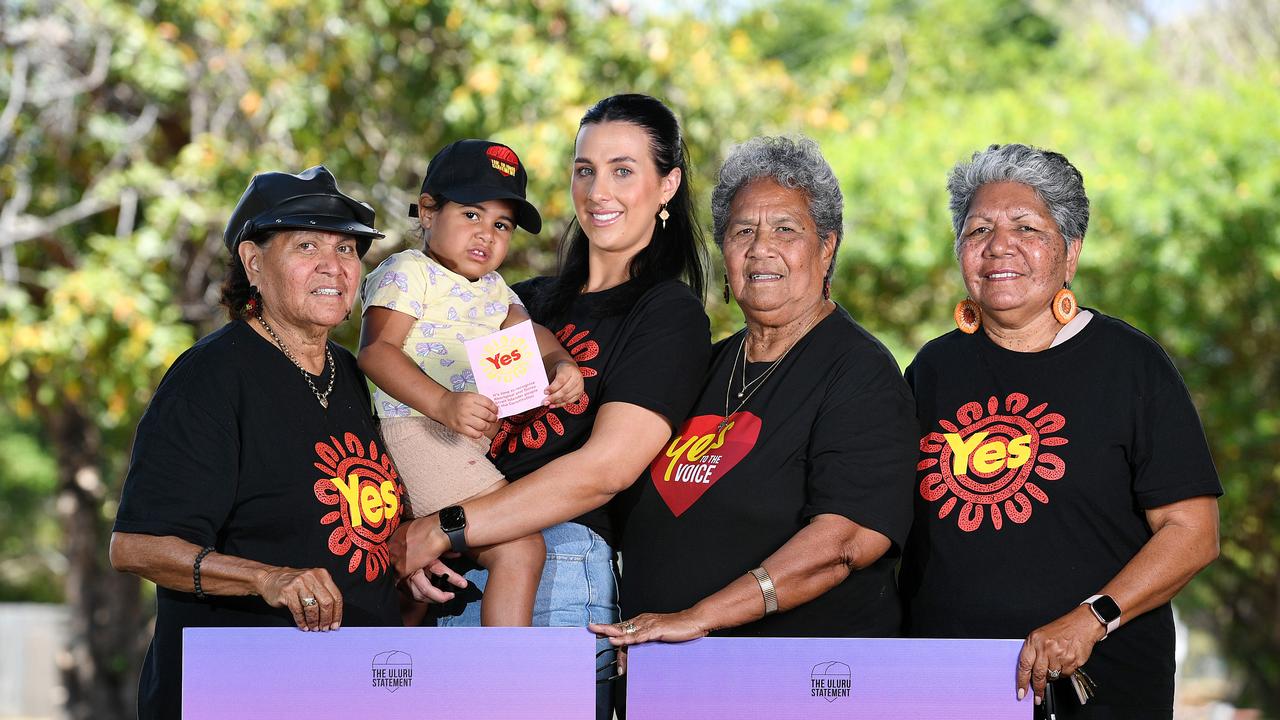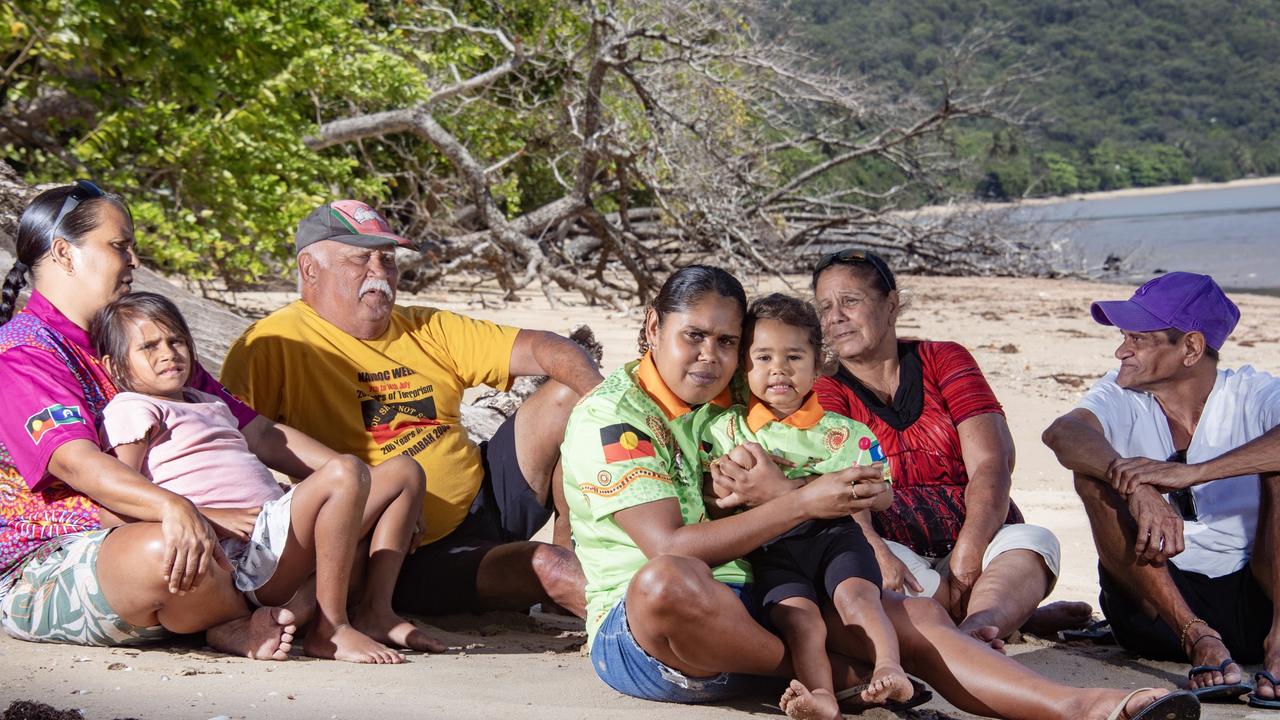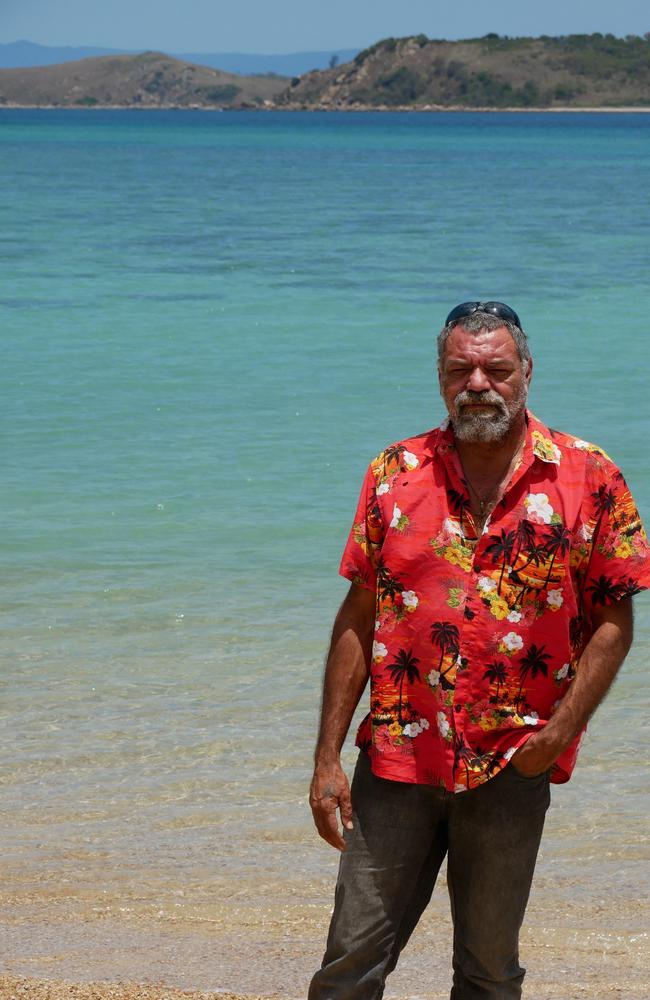Qld Indigenous towns overwhelmingly voted for a Voice, as state said no
Queensland’s remote Indigenous communities overwhelmingly voted for a Voice to Parliament, even as the state delivered by biggest No vote of any jurisdiction.
QLD Politics
Don't miss out on the headlines from QLD Politics. Followed categories will be added to My News.
Queensland’s remote Indigenous communities overwhelmingly voted for a Voice to Parliament, even as the state delivered by biggest No vote of any jurisdiction.
It sparked calls for First Nations Australians not to give up, but to “get back in the trenches” and campaign for truth telling and treaty.
One elder from Townsville said she wanted to thank the millions of Australians who voted Yes, but that the result showed “we’re still a racist country”.
There was a mix of reactions from Indigenous communities across the state, with some people expressing hurt, while others indicated that the result was not a surprise.
Places such as Yarrabah, Hope Vale and Palm Island, which have an Indigenous population of more than 90 per cent, recorded a 75 per cent vote for Yes.
In the Gulf of Carpentaria, Doomadgee recorded a 66 per cent vote for Yes, and Mornington Island voted 77 per cent Yes. Normanton, also in the Gulf region and with Aboriginal and Torres Strait Islander people making up 57.8 per cent of its population, narrowly voted No, 51-49.

It follows warnings that the Yes23 Campaign had failed to engage enough with remote communities in the Gulf of Carpentaria.
Cherbourg, which is one of the largest discreet Indigenous communities in the state, returned 58 per cent support for the Voice, while Pormpuraaw in the Gulf recorded about 55 per cent support.
Palm Island man Anthony Wotton has been left questioning when Indigenous people will get the opportunity to decide their own futures.
“So what, we people just got to sit down and listen to a government that don’t care,” he said.
“Two hundred years got wasted, yet they still don’t want to listen to our culture. Fifty thousand or 60,000 years, the oldest culture on Earth and no one wants to listen to us,” Mr Wotton said. Former Yarrabah mayor and Elder Percy Neal, 73, said he was not surprised by the vote.
While he had spoken to some people who were hurt by the result, he said it meant there was more work to do.
“It’s sad, but the war goes on,” he said. “The mob need to get back into the trenches, have a good old look at where it went wrong.

“From day one it went wrong, it’s how they conducted themselves.”
He said factors contributing to the one-in-four people in Yarrabah who voted no included a lack of signage from the Yes campaign on polling day and “no real communication” with the community in Yarrabah.
Mr Neal said treaty and truth telling should be part of the way forward from here.
“It makes the country much better, it makes the relationship much better and it helps us understand each other,” he said.
Townsville-based Elder Dr Gracelyn Smallwood, a Birri Gubba woman and professor at James Cook University, said she wanted to thank the millions of Australians who voted Yes.
“It’s a sad day, but it has also proved that we’re still a racist country,” she said.
“It doesn’t mean that we give up. We have to keep on keeping on.

“I’m optimistic that the younger generation, black and white, can come together after truth telling occurs.”
Dr Smallwood said people would continue their fight for justice. “My life isn’t going to change. I’m going to continue speaking out, I’ve been doing it for 56 years,” she said.
She was unsurprised that Indigenous communities voted Yes in large numbers as “they’re going to funerals every week and deaths are happening every day”.
Lance Beckett, 53, of Palm Island, voted Yes in the referendum and was clearly angry and shocked at the results.
“Not one fricken state … we don’t even have a yes vote in one state, what the hell is going on?” Mr Beckett said.
The 2022 Closing the Gap report found the gap between Indigenous and non-Indigenous Australians was widening, including the number of children who are ready for school, adult incarcerations rates, children in out-of-home care and deaths by suicide.



